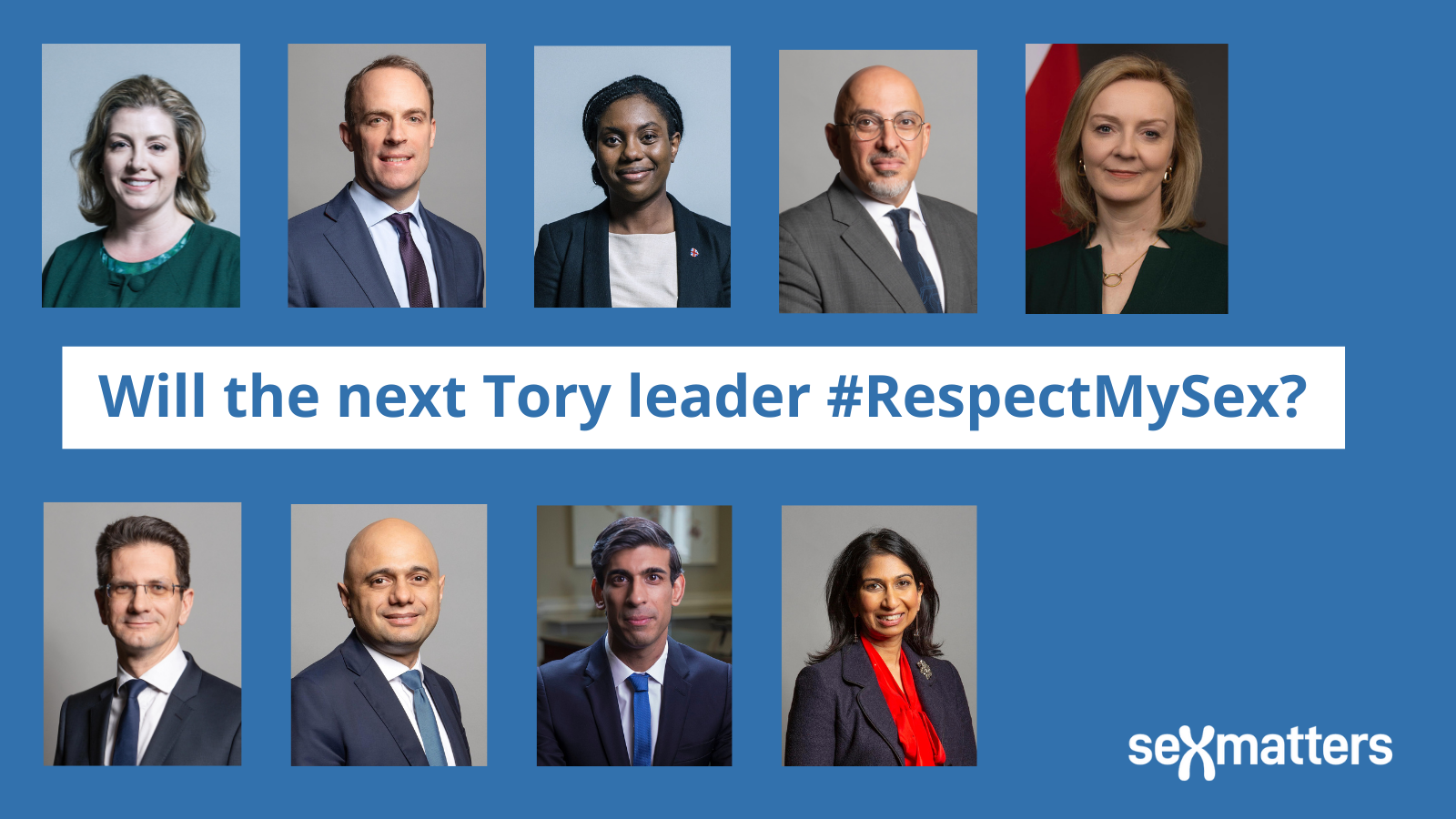Will the next Tory leader #RespectMySex?

Boris Johnson is on his way out, and the contest to decide who will replace him as prime minister and leader of the Conservative Party will begin shortly. At the time of writing, there are at least 15 potential contenders, but there is no obvious favourite, as there was in 2019. They can be assessed against many criteria, but this post concentrates on their actions and statements to date on sex and gender.
The sex-denialists?
Two of the contenders, Steve Baker and Penny Mordaunt, have previously expressed support for sex-denialist positions.
Penny Mordaunt has repeatedly stated that “trans women are women”. But as Minister for Women facing questions on Mumsnet, she furiously ducked the question of what she meant by this, and how she would reconcile her position with protecting women’s rights:
“I know what you’re getting at in this question. On these matters you’ll find me to be understanding and highly pragmatic. I get your concerns about this. My job is to ensure that these issues are dealt with and that everyone can go about their business and can feel supported and comfortable. And I am trying to do this swiftly.”
During the 2021 debates about the word “woman” in legislation, she stated again, this time from the despatch box in the House of Commons, that “trans men are men, and trans women are women”. Jayne Ozanne, who founded and chairs the Ban Conversion Therapy Coalition and argues that gender-critical viewpoints are “transphobic”, has reportedly asserted that Mordaunt is “the only person who can successfully rebuild [the Conservative Party’s] relations with the LGBTQ+ community as the next Tory leader”.
Steve Baker has told constituents that he was “deeply disappointed” by the government’s decision to “remove trans and non-binary people” from the scope of its proposed ban on conversion therapy.
The sex-realists
Almost half of the contenders – Kemi Badenoch, Suella Braverman, Sajid Javid, Dominic Raab, Rishi Sunak, Liz Truss and Nadhim Zahawi – have made it reasonably clear through personal statements, actions as ministers or both that they hold the beliefs almost certainly widely shared among the 200,000 party members who get the final say: that there are two sexes, that human beings cannot change sex, and that sex matters (sometimes a lot) in certain circumstances. And we can probably add Priti Patel to this group.
Kemi Badenoch has shown most leadership on the issue and clearly understands that the views of gender-critical people such as Professor Kathleen Stock are “probably in step with the majority of the population”. When questioned by the chair of the Women and Equalities Select Committee about her views on “trans children” and school dormitories, Badenoch first sought clarity on the question:
“Are you saying if a biological male child was in a dormitory with biological females but said he was a girl, would I be comfortable with that?”
She then stated clearly that no, she wouldn’t be.
Nadhim Zahawi has overseen the development of new guidance on gender and sex for schools, saying:
“Parents have to be front and centre of this. And that is my message to the front line is to say: you have to involve parents in this. You have a duty to safeguard those children and parents are very much part of that”.
He met with LGB groups and attracted the ire of trans activists for “inciting hatred” by defining women as adult human females. He has also said that schools should be open with parents about the materials they are using for sex education.
Liz Truss as Women and Equalities Minister has spoken up for single-sex services. She has in turn been accused by Pink News and others of “launching anti-trans rants and tirades” and the like.
The unknowns
Another five of the 15 – Steven Barclay, Michael Gove, Jeremy Hunt, Tom Tugendhat and the current favourite of party members, Ben Wallace – are impossible to place, having said little or nothing about the issue. However, they may not be able to maintain this apparent neutrality, or lack of interest, throughout the contest, as party members and the public will want to know whether potential party leaders will “Respect My Sex”.
The contest could take anything from a few weeks to a few months, and before the starting gun is fired more contenders may emerge. But whoever wins will have to decide whether to continue the government’s increasingly balanced and cautious approach to the issue, or strike out in a new direction.
